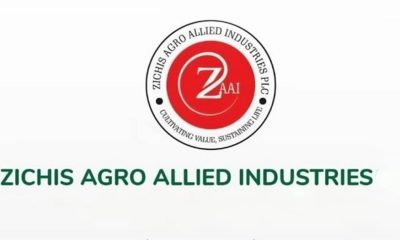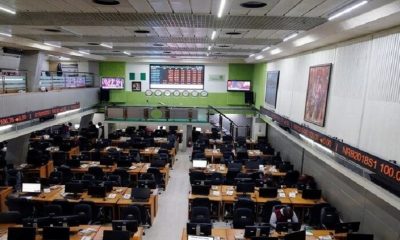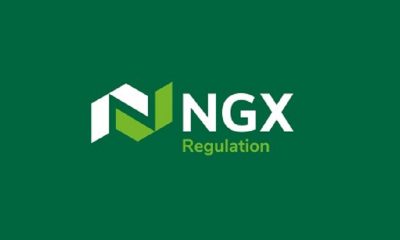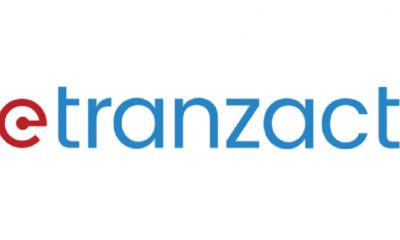Economy
How to Invest in US Stocks in South Africa: A Comprehensive Guide From TU Experts
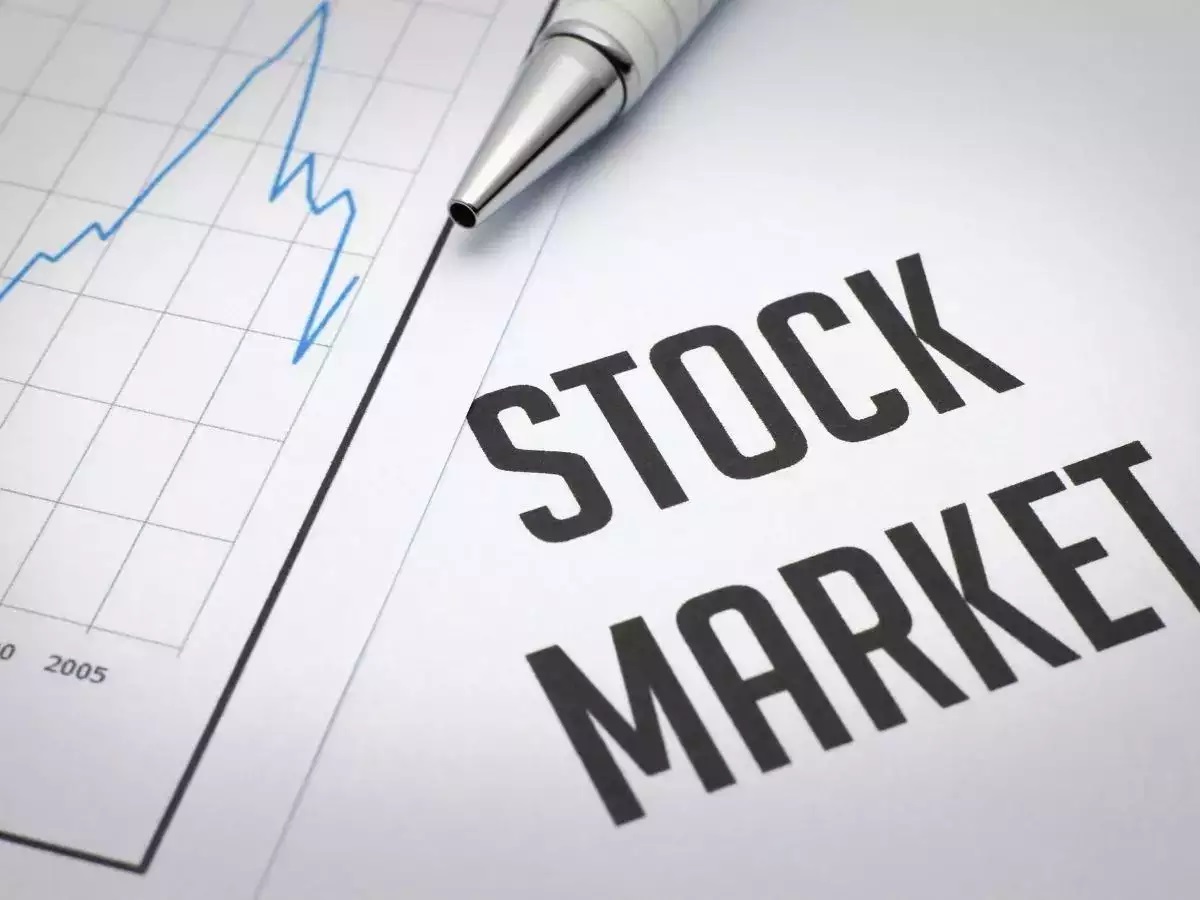
Reputable brokers in South Africa offer profitable and straightforward services for investing in stocks, including U.S. stocks. Traders Union experts provide the answers on how to buy shares in South Africa and highlight the best brokers for successful investing in the country.
Investment in US stocks from South Africa
TU analysts point out that South African citizens have two options for investing in U.S. stocks: using either a local stock broker or an international stock broker. International brokers provide expanded access to global markets and a diverse selection of assets, but may not be locally regulated and may have higher transaction costs. On the other hand, local brokers offer specialized services for the local market, but have limited access to international markets and investment options. Investors should consider the pros and cons of each type of broker based on their individual needs and preferences. So how to invest in US stocks in South Africa?
What is the best investment amount for me?
Starting with just 965.53 South African Rand (approximately $50), investors can buy 1-2 cheap shares in South Africa. Statistics from Finder.com reveal that 20% of South Africans invest less than R8,500, while 5% invest between R8,500 and R35,001, 2% between R35,001 and R70,000, and 6% invest over R70,000. Some experts suggest a minimum of R5000 ZAR for a successful investment, but the actual minimum varies depending on the chosen broker.
Purchasing more shares is cost-effective, with brokers recommending lots of 50 or 100 shares for ease of accumulation and tracking. Alternatively, analysts at Traders Union say that investors can consider broad market index ETFs as a low-cost option to invest in the South African stock market.
South Africa’s best brokers for buying US stocks
TU analysts emphasize that to succeed in investing in U.S. stocks in South Africa, choosing the right stockbroker is crucial.
- RoboForex: Offers a wide range of products and services, including copy trading through CopyFX, with a minimum deposit of $100. They provide access to over 12,000 stocks, indices, and ETFs across six platforms.
- IC Markets: Ideal for active traders in South Africa, offering access to over 10,000 securities, including large-cap stock CFDs with fast execution on major stock exchanges. They provide high leverage, low spreads, and multiple trading platforms.
- Exness: Known for copy trading stocks, Exness is a large and trustworthy international Forex broker, offering low spreads and a range of trading accounts with variable spreads.
Selecting the right broker can significantly impact your investment journey and potential returns.
What is the best way to start trading stocks in South Africa?
Investing in U.S. stocks in South Africa can be both simple and daunting. To get started, you need to open an account with either a local or international broker, depending on the stocks you want to purchase. Here are some quick tips from Experts at Traders Union:
- Understand the stock market’s definition and workings.
- Learn how to trade shares and choose a trustworthy broker.
- Request access to price information for the stocks you want to trade.
- Build a diversified trading plan and analyze the market.
- Select a share or top ETF to trade, considering risks, charges, and available stocks.
- Complete the registration process for your chosen broker to open a share trading account.
- Look for stock trading opportunities and manage your positions carefully.
- When choosing an international broker, check fees, available currency pairs, and assets.
- Remember that buying stock abroad requires selling it there, with different commissions and fees for international trades involving U.S. stocks.
Conclusion
Investing in U.S. stocks in South Africa is made accessible by reputable brokers offering straightforward services. TU experts provided valuable information on buying shares in South Africa and highlighted the best brokers for successful investing.
Economy
NGX RegCo Cautions Investors on Recent Price Movements

By Aduragbemi Omiyale
The investing public has been advised to exercise due diligence before trading stocks on the Nigerian Exchange (NGX) Limited.
This caution was given by the NGX Regulation Limited (NGX RegCo), the independent regulatory arm of the NGX Group Plc.
The advisory became necessary in response to notable price movements observed in the shares of certain listed companies over recent trading sessions.
On Monday, the bourse suspended trading in the shares of newly-listed Zichis Agro-allied Industries Plc. The company’s stocks gained almost 900 per cent within a month of its listing on Customs Street.
In a statement today, NGX RegCo urged investors to avoid speculative trading based on unverified information and to consult licensed intermediaries such as stockbrokers or investment advisers when needed.
It explained that its advisory is part of its standard market surveillance functions, as it serves as a measured reminder for investors to prioritise informed and disciplined decision-making.
The notice emphasised that the Exchange will continue to monitor market activities closely in line with its mandate to ensure a fair, orderly, and transparent market.
“NGX RegCo encourages all investors to base their decisions on publicly available information, including a thorough assessment of company fundamentals, financial performance, and risk profile,” a part of the disclosure said.
It reassured all stakeholders that the NGX remains stable, well-regulated, and resilient, saying the platform continues to foster an environment where investors can participate with confidence, supported by robust oversight and transparent market operations.
“Our primary responsibility is to maintain a level playing field where market participants can trade with confidence, backed by timely and accurate information.
“This advisory is a routine communication, reinforcing that sound fundamentals, not speculation, remain the foundation for sustainable investment outcomes. We are fully committed to preserving the integrity and stability of our market,” the chief executive of NGX RegCo, Mr Olufemi Shobanjo, stated.
Economy
Stronger Taxpayer Confidence, Others Should Determine Tax Reform Success—Tegbe

By Modupe Gbadeyanka
The chairman of the National Tax Policy Implementation Committee (NTPIC), Mr Joseph Tegbe, has tasked the Nigeria Revenue Service (NRS) to measure the success of the new tax laws by higher voluntary compliance rates, lower administrative costs, fewer disputes, faster resolution cycles, and stronger taxpayer confidence.
Speaking at the 2026 Leadership Retreat of the agency, Mr Tegbe said, “Sustainable revenue performance is built on trust and efficiency, not enforcement intensity,” emphasising that the legitimacy and predictability of the system are more critical than punitive measures.
He underscored that the country’s tax reform journey is at a critical juncture where effective implementation will determine long-term fiscal outcomes.
The NTPIC chief stressed that tax policy must serve as an enabler of governance, and should embody simplicity, equity, predictability, and administrability at scale.
These principles, he explained, foster voluntary compliance, reduce operational friction, and strengthen investor confidence. He warned that ad-hoc adjustments or policy drift could undermine reform momentum, unsettle businesses, and deter investment, which thrives on predictable rules rather than shifting announcements. Structured sequencing, clear transition mechanisms, and continuous feedback between policymakers and administrators are therefore critical to sustaining reform credibility.
Mr Tegbe further argued that revenue reform cannot succeed in isolation. Achieving sustainable gains requires a whole-of-government approach, leveraging robust taxpayer identification systems, integrated financial data, efficient dispute resolution, and harmonised coordination across federal and sub-national levels. This approach, he said, reduces leakages, eliminates multiple taxation, and reinforces confidence in the system.
He noted that the passage of four new tax laws marks only the beginning of a broader reform agenda, describing the initiative as a systemic recalibration of Nigeria’s fiscal architecture, rather than a routine policy update.
He further asserted that the true measure of success will be the credibility of implementation, not the design of the laws themselves.
The NRS, he noted, functions as the nation’s “Revenue System Integrator,” with outcomes reflecting the strength of an interconnected ecosystem that encompasses policy clarity, enforcement consistency, digital infrastructure, dispute resolution efficiency, and intergovernmental coordination.
Economy
NUPENG Seeks Clarity on New Oil, Gas Executive Order

By Adedapo Adesanya
The National Union of Natural and Gas Workers (NUPENG) has expressed deep concern over the Executive Order by President Bola Tinubu mandating the Nigerian National Petroleum Company (NNPC) Limited to remit directly to the federation account.
In a statement signed by its president, Mr William Akporeha, over the weekend in Lagos, the union noted that the absence of detailed public engagement had naturally generated tension within the sector and heightened restiveness among workers, who are anxious to know how the new directive may affect their employment, welfare and job security, especially as it affects NNPC and other major operations in the oil and gas sector.
It pointed out that the industry remained the backbone of Nigeria’s economy, contributing significantly to national revenue, foreign exchange earnings, and employment.
The NUPENG president affirmed that any policy shift, particularly one introduced through an Executive Order, has far-reaching consequences for regulatory frameworks, Investment decisions, operational standards, and labour relations within the sector.
According to him, “there is an urgent need for clarity on the scope and objectives of the Executive Order -What precise reforms or adjustments does it introduce? “Its implications for the Petroleum Industry Act -Does the Order amend, interpret, or expand existing provisions under PIA?
“Impact on workers and existing labour agreements-Will it affect job security, conditions of service, Collective Bargaining agreements or ongoing restructuring processes within the industry? “Effects on indigenous participation and local content development -How will it affect Nigerian companies and employment opportunities for citizens?”
He warned that without proper consultation and explanation, misinterpretations of the Executive Order may spread across the industry, potentially destabilising operations and undermining industrial harmony that stakeholders have worked hard to sustain.
“Though our union remains committed to constructive engagement, national development and stability of the oil and gas sector, however, we are duty-bound and constitutionally bound to protect the rights and welfare and job security of our members whose livelihoods depend on a clear, fair and predictable policy framework,” Mr Akporeha further stated.
-

 Feature/OPED6 years ago
Feature/OPED6 years agoDavos was Different this year
-
Travel/Tourism10 years ago
Lagos Seals Western Lodge Hotel In Ikorodu
-

 Showbiz3 years ago
Showbiz3 years agoEstranged Lover Releases Videos of Empress Njamah Bathing
-

 Banking8 years ago
Banking8 years agoSort Codes of GTBank Branches in Nigeria
-

 Economy3 years ago
Economy3 years agoSubsidy Removal: CNG at N130 Per Litre Cheaper Than Petrol—IPMAN
-

 Banking3 years ago
Banking3 years agoSort Codes of UBA Branches in Nigeria
-

 Banking3 years ago
Banking3 years agoFirst Bank Announces Planned Downtime
-

 Sports3 years ago
Sports3 years agoHighest Paid Nigerian Footballer – How Much Do Nigerian Footballers Earn


